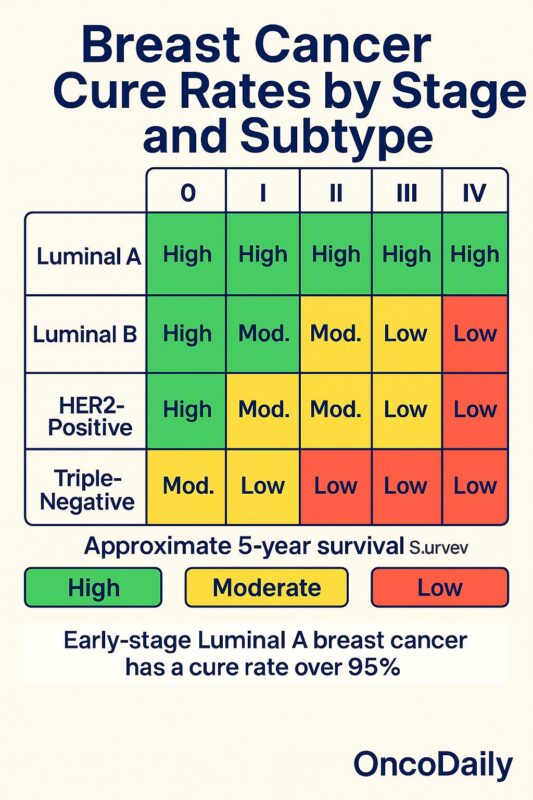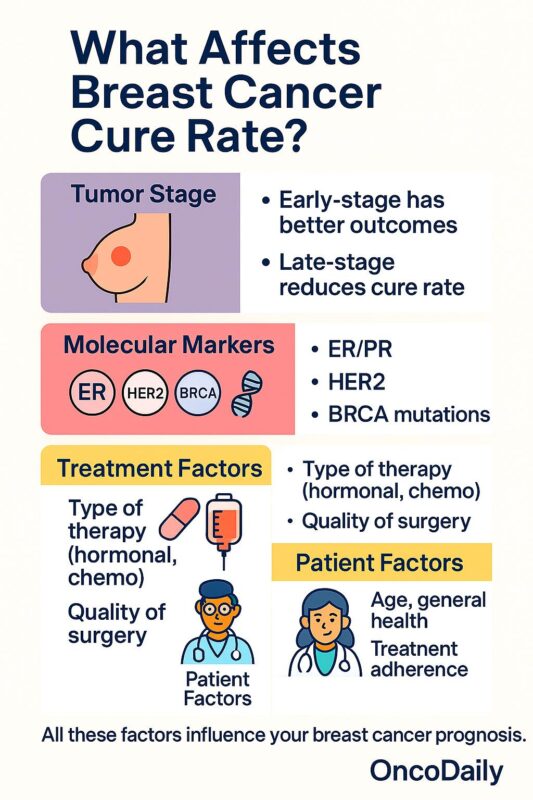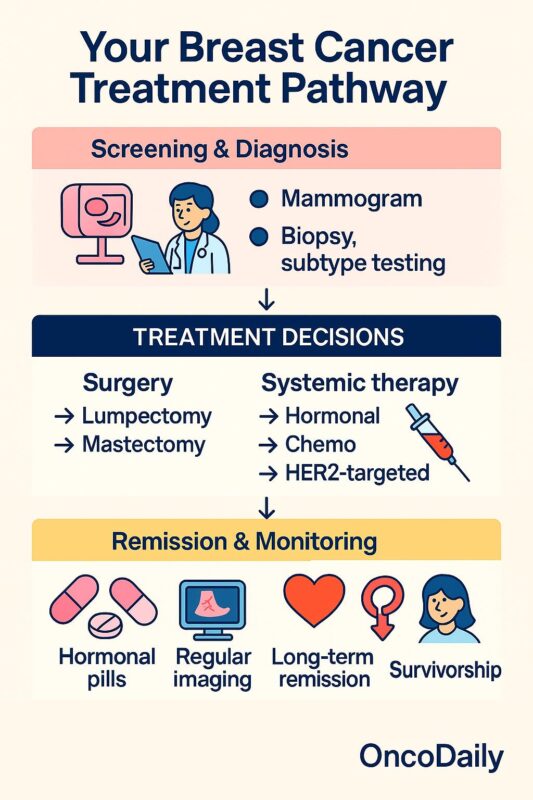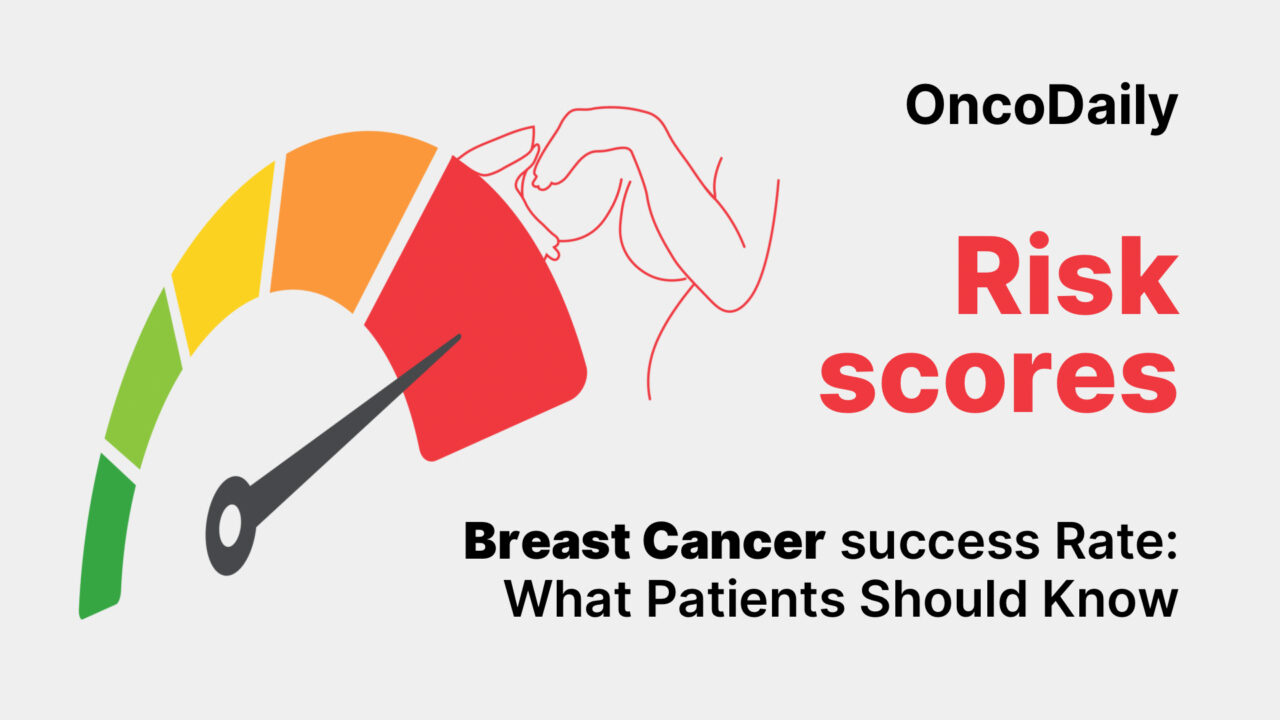Breast cancer is one of the most prevalent cancers worldwide, but it is also one of the most treatable when detected early. Advances in treatment options and early detection have significantly improved the breast cancer success rate, offering patients better outcomes than ever before. The success of breast cancer treatment depends on several factors, including the stage at diagnosis, tumor type, genetic makeup, and response to therapy.
Survival Rates and Treatment Success
The breast cancer success rate varies significantly depending on the stage of the disease at diagnosis. Early-stage breast cancer is highly treatable, and the survival rate for patients with localized tumors (Stage I) is over 98% (American Cancer Society, 2024). When breast cancer is confined to the breast and has not spread to lymph nodes or distant organs, surgical removal of the tumor followed by radiation therapy often provides a cure.
For Stage II breast cancer, where the cancer has spread to nearby lymph nodes but has not yet reached distant organs, the 5-year survival rate remains high at approximately 93% (American Cancer Society, 2024). Patients in this stage typically undergo a combination of surgery, chemotherapy, and radiation, all of which significantly reduce the risk of recurrence.
As breast cancer progresses to Stage III, where it has spread to nearby tissues or multiple lymph nodes, treatment becomes more complex. While the breast cancer success rate declines at this stage, the 5-year survival rate is still around 72% (DeSantis et al., 2020). This stage requires aggressive treatment, including surgery, chemotherapy, radiation, and possibly targeted therapies, to achieve remission and prevent further spread.
For patients with Stage IV breast cancer, the disease has spread to distant organs, such as the bones, lungs, or liver. While Stage IV breast cancer is not curable, new treatments have significantly improved the quality of life and extended survival. The 5-year survival rate for Stage IV breast cancer is around 22%, but with newer treatments, many patients are living much longer than before (DeSantis et al., 2020). The breast cancer success rate in this stage is highly dependent on the tumor’s characteristics and how well it responds to therapies like chemotherapy, immunotherapy, and targeted treatments.

Factors That Influence Breast Cancer Success Rates
Several factors can influence the breast cancer success rate, including the patient’s age, the type of breast cancer, and the tumor’s genetic and molecular profile. Younger patients tend to have better outcomes, as they are more likely to respond well to aggressive treatments. The type of breast cancer also plays a significant role in prognosis. For example, papillary breast cancer, the most common type, has a higher success rate than rarer forms like inflammatory breast cancer or triple-negative breast cancer, which are more aggressive and harder to treat.
The genetic characteristics of the tumor are also crucial in determining how well a patient will respond to treatment. Tumors that are estrogen receptor-positive (ER+) or progesterone receptor-positive (PR+) generally have better outcomes and are more responsive to hormone therapies, such as tamoxifen or aromatase inhibitors. HER2-positive breast cancer, which overexpresses the HER2 protein, is often treated with HER2-targeted therapies like trastuzumab (Herceptin), improving survival outcomes significantly.
Moreover, BRCA mutations can influence treatment decisions and patient outcomes. For example, patients with BRCA1 or BRCA2 mutations may consider prophylactic mastectomy or undergo more aggressive chemotherapy regimens.

Treatment Options for Breast Cancer
Breast cancer treatment typically begins with surgery, either a lumpectomy (removal of the tumor) or mastectomy (complete removal of the breast). Depending on the tumor’s characteristics and the stage of the disease, additional treatments may include chemotherapy, radiation therapy, hormone therapy, and targeted therapies.
After surgery, many patients undergo radiation therapy to eliminate any remaining cancer cells. Chemotherapy is often used to treat more advanced stages of the disease, especially if there is a risk of recurrence. Targeted therapies, such as HER2 inhibitors for HER2-positive breast cancer, and immunotherapy are emerging options for patients with advanced or metastatic disease.
For hormone receptor-positive breast cancer, treatments like tamoxifen or aromatase inhibitors block the hormones that fuel tumor growth, improving long-term survival. Immunotherapy has shown promise in treating triple-negative breast cancer, a subtype that does not respond to hormone therapy or HER2-targeted treatments.
Importance of Early Detection
Early detection is vital for improving the breast cancer success rate. Regular screenings, such as mammograms, along with self-breast exams and awareness of symptoms like lumps or changes in breast shape, can lead to early diagnosis, when the disease is more likely to be cured. The earlier the detection, the better the chances of achieving remission and a full recovery.

Conclusion: Hope and Advances in Treatment
Breast cancer is a highly treatable cancer, and the breast cancer success rate is steadily improving with advancements in screening, treatment, and personalized medicine. Early detection remains the most important factor in achieving high survival rates. While survival rates decrease as the disease advances, new therapies are making it possible for patients with advanced breast cancer to live longer and experience a better quality of life.
The future of breast cancer treatment looks promising, with ongoing research focused on improving existing therapies and finding new, more effective ways to fight the disease. With the right treatment plan and support, many patients are living long, healthy lives after a breast cancer diagnosis.
Your diagnosis doesn’t define your future—early detection and treatment do.
You Can Watch More on OncoDaily Youtube TV
Written by Armen Gevorgyan, MD


